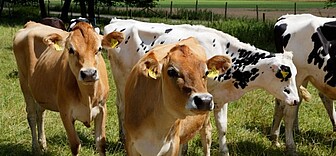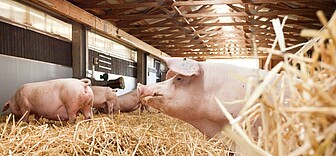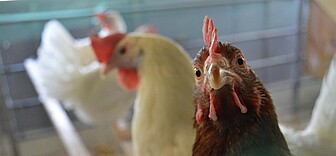Project content according to research focus
Ongoing research projects
The Research Unit "P-Fowl" investigates the role of lower inositol phosphates and myo-inositol in the fowl. The overall objective is to explore and understand the genetic and non-genetic variations in the formation of inositol phosphate derivatives and myo-inositol by endogenous phytases (from epithelium and microbiota), as well as their relevance for phosphorus utilization, microbiome, and animal physiology.
Reserach foci: Microbiome & Nurtrition, Microbiome & Health, Microbiome & Genome
Click logo for more information (you will be redirected to the P-Fowl project page).
Host-Microbiome Interaction: Implications for cellular and global energy metabolism of dairy cows (WiMiQ)
WiMiQ
Forschungsschwerpunkt: Mikrobiom & Ernährung
Laufzeit: 2024-2026
DFG: Projektnummer 202989534
Beteiligte Personen
Zusammen mit FLI Braunschweig (Dr J. Frahm, Prof. S. Dänicke), Uni Bonn (Prof. H. Sauerwein)
Forschungsschwerpunkte: Mikrobiom & Ernährung, Mikrobiom & Genom
The overall objective of the ProBioHuhn project is a fundamental contribution to the development of new strategies for the reduction of disease on organic broiler farms with special consideration of the gut microbiome.
Research focus: Microbiome & Health
Funding code: 2821OE034 (Federal Ministry of Food and Agriculture)
The LiMBiom-S aims to establish for the first time a standardised working protocol and open-source references for microbiome research on farm animals using the example of pigs. Together with standardised documentation guidelines, this should make it possible to compare microbiome data and results from a wide range of laboratories, generate statistics and thus reach conclusions more quickly on their practical relevance and application, e.g. for improved animal welfare, health and performance of farm animals as well as for sustainable animal production and agricultural practice.
Research foci: Microbiome & Nutrition, Microbiome & Health, Microbiome & Genome
Funding code: 28N-2-051-01 (Federal Ministry of Food and Agriculture)
The overall goal of the project is to promote the increased use of peas as a protein source in pig feeding. In representative, varietal origins of peas with different nutrient composition, the in vitro digestibility and the fermentation properties are first determined and, based on this, digestibility values are determined for selected pea varieties with pigs. In addition, the digestibility values are determined after fermentation with and without enzyme additives. The activities of digestive enzymes are measured in the experiments and changes in the microbiome in the intestinal digesta and in the faeces of the animals are determined.
Research foci: Microbiome & Nutrition
Funding code: 2821EPS016
Sustainable reduction of methane emissions in dairy farms considering breeding strategies, improved feed efficiency and animal health (project 4)
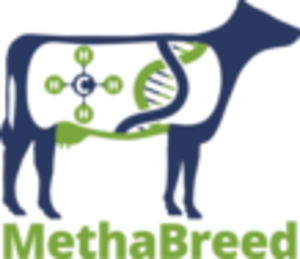
Duration: 2025-2027
Funding by Bundesanstalt für Landwirtschaft und Ernährung
Forschungsschwerpunkt: Mikrobiom & Genom
Partners:
- Förderverein Bioökonomieforschung e.V. (FBF)
- Vereinigte Informationssysteme Tierhaltung w.V. (vit)
- Justus-Liebig-Universität Gießen (JLU)
- Christian-Albrechts-Universität zu Kiel (CAU)
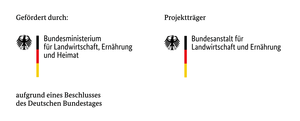
Correlation of metal homeostasis and catabolism of Prevotellaceae in the rumen
Start: since 01.01.2025
Funding: DFG (327953272)
Forschungsschwerpunkte: Mikrobiom & Ernährung,
Zusammenhang zwischen Metall-Höostase und Katabolismus von Prevotellaceae im Pansen

